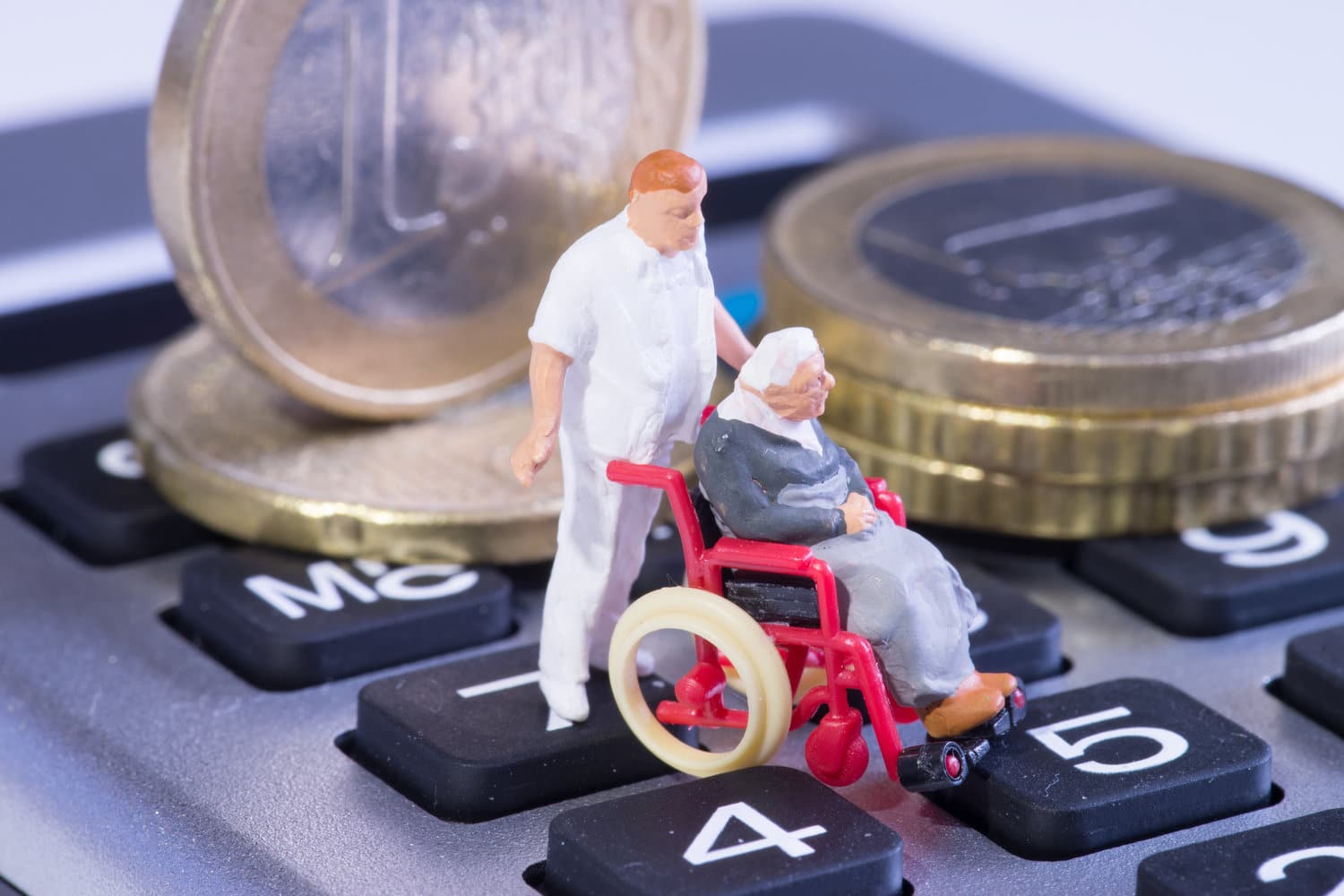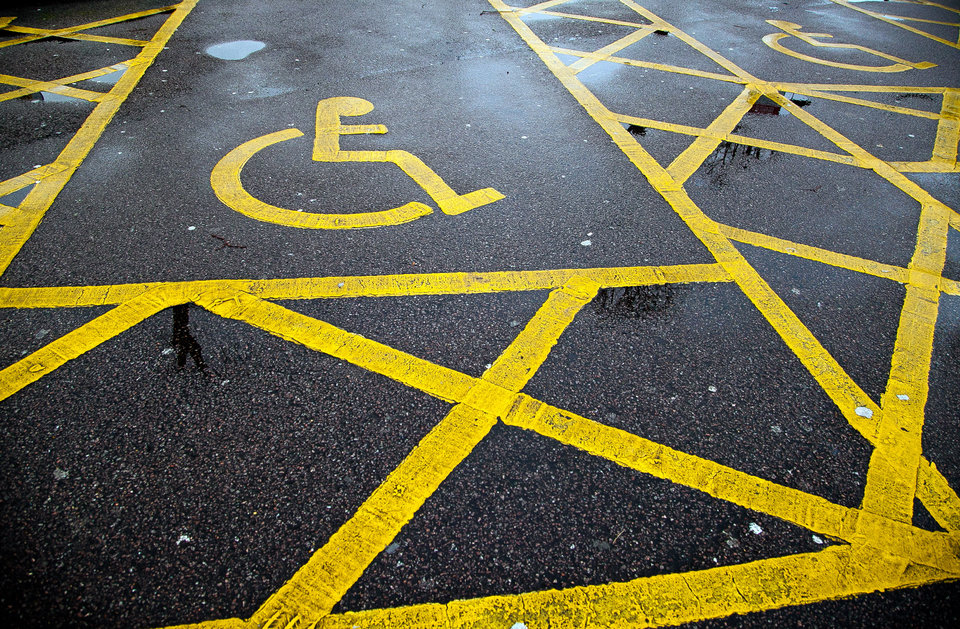Jasmine Birtles
Your money-making expert. Financial journalist, TV and radio personality.

One in ten people in the UK is a carer (that’s around 7 million people). Yet, many don’t know that there’s financial and emotional support available for them – not just the people they look after.
Carers may look after people with disabilities, older people, or those with mental difficulties. They range in age from school age carers through to elderly spouses looking after their loved ones. The emotional toll of continuous care for someone you love is hard – and it often means carers forget to look after themselves mentally, physically, and financially.
If you’re a carer, make sure you’re claiming all the financial support you can. Keep reading to find out whether you’re eligible for benefits, grants, or extra help.

You could be entitled to Carer’s Allowance, if you look after someone for 35 hours a week or more.
To qualify, the person you care for must receive certain benefits, such as Personal Independence Payment (daily living component), Disability Living Allowance (mid or upper allowance), Attendance Allowance or Armed Forces Independence Allowance.
Currently, Carer’s Allowance is £76.75 week. If you’re on a low income (which is likely for many eligible carers, as 35 hours a week of care is full-time), you can apply for Universal Credit, too. This may help towards your housing costs, and entitles you to apply for a Council Tax discount, too.
You’ll get National Insurance credits for each week you claim Carer’s Allowance, or Pension Credit if you’re older.
When you’re on a low income, as most carers are, you also qualify for the Warm Home Discount scheme. This is £150 paid directly to your electricity bill during winter, to help you with the costs of heating.
Your local authority is there to help you. As well as the state benefits available to carers, look into what your local council offers, too.
You’ll need to have a Carer’s Assessment. This is where the council assesses the level of care you provide someone else – and what you need to do that well. You could be offered respite care, support from home visits or a befriending service, and – crucially – extra financial support.
This support comes in different forms. Often, it’s designed to help you manage your caring duties more easily – such as providing equipment for the person you care for, like a bed hoist, to help you manage. Sometimes, you’ll receive a personal budget, to help with your duties. For example, if you don’t drive but regularly need to take a taxi in the line of your caring role (such as getting to and from a supermarket), a budget could be provided for this.
Carers are the unsung heroes of society. The level of financial support is very little (Carer’s Allowance is lower than weekly Jobseeker’s Allowance, for example). So, when it’s time for your Carer’s Assessment, be as honest about the impact of your caring role on your own finances. By caring for your loved one, you’ve significantly reduced the burden on the local authority’s expenditure already – so asking for financial support is perfectly acceptable!
OK, this one is for the person you care for, rather than you – but it’ll significantly help you, too. For example, if your loved one could turn a downstairs bathroom into a walk-in wet room, they might be able to regain some independence. This helps reduce the stress on your caring role, and gives them a sense of independent living. Even if you still need to help with bathing, it’s much easier to do this in a wet room than a typical bathroom.
Your local council will assess the needs of the person you care for and provide a budget for the work required. This is called a Disabled Facilities Grant, and is paid to the person you care for.

The person you care for could qualify for a Blue Badge. That means that, whenever you’re driving with them, you can use the badge to park in disabled spaces or other areas so they don’t have to walk so far to their destination.
But did you know that a Blue Badge also entitles them to many other discounts? To start with, if you drive their car (when they’re with you) in London, you’re entitled to a discounted Congestion Charge fee.
You could also use their badge to prove that you’re their carer in other situations. For example, if you want to take them to the theatre, many venues offer a free Carer’s Ticket (often alongside a discounted ticket for the Blue Badge holder, too). You could even get into theme parks for free!
Again, these discounts rely on the fact you’re with the person you’re caring for – but if you can take them out and about, it’s a great way to make sure you have fun together even when you’re both on a low income.
If you travel frequently with the person you care for by train, you can apply for a discounted rail card. This gives you both one third off rail ticket prices, including peak times.
If you’re claiming Carer’s Allowance, and especially if you also claim Universal Credit, you’ll find there are all sorts of low-income discounts available to you.
Some colleges, for example, offer half-price courses for those who can prove a low income. You’ll also be able to claim cheaper rates at the dentist, if you don’t have any other source of income than state benefits. Many gyms, too, offer concessionary rates for those in receipt of state benefits.
If you have school age children, you can apply for additional discounts such as free school meals and discounted school uniforms. Those with children under the age of 4 could qualify for Healthy Start food vouchers, to help buy necessities such as milk. All of this will help reduce the impact of your caring role on your finances.
There are lots of small charities out there willing to help carers fund certain things to take the financial pressure off providing care on a regular basis.
For example, if your fridge is on the blink, you could get a small grant to pay for a new one. Use the Turn2Us Grants Checker to find out which grants could help you.

You need a break every now and then! Many charities that support carers offer holidays at a discounted rate (or for free). This could be a break just for you to get away, if you can arrange care for your loved one in the interim (or sometimes they’ll provide the care, too). Or, it could be a holiday for you both to take together!
Lots of holidays for disabled people and their carers use specially-adapted accommodation to make it easy for you to get away for a few days. There’s often lots to do on these holidays, too, helping take the load off you a little.
You could also look into day services in your local area, to give you a little respite from your caring role. These services help get the person you care for out and about, socialising, and engaged in fun activities. It gives you a few hours in the week to put your feet up, have a bath, and relax – or simply get on with your own chores that have piled up!
You’re no good to helping anyone if you burn yourself out in the process! Get in touch with groups such as Care UK to find local services in your area. Many offer carer groups, allowing you to meet with other carers, and share your hopes, fears, and experiences over a cup of tea (and usually cake, too!).
Emotional support is important for your health AND your finances. That’s because when you’re on a low income, debt often looms on the horizon. If you’re stressed out and not focused on yourself, it’s easy to let small debts get out of control – with something as simple as a forgotten credit card statement.
If you don’t want to meet people in person, there are telephone lines you can try, too.
Remember, you can hop on over to our Magpie Messageboards to talk to other people about your worries, experiences, and financial questions!
Looking after yourself – and your financial wellbeing – is so important when you’re caring for someone else, too. Read these find out how to make money in your spare time, even while you’re asleep!

A very important article concerning an often overlooked group.